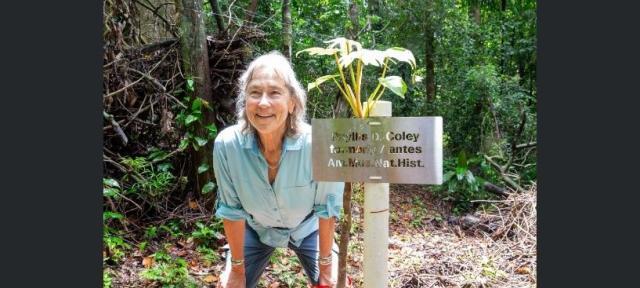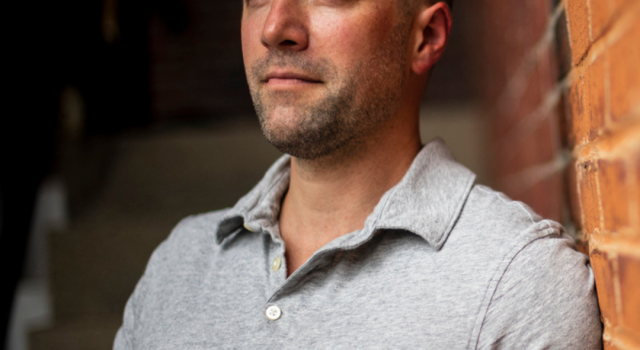Hampshire Alum and Biologist Phyllis D. Coley 70F Celebrated By The Smithsonian Tropical Research Institute

Fifty years after beginning her work on Barro Colorado Island, Panama, Dr. Coley was recognized for her pioneering fieldwork and research with an island trail renamed in her honor.
University of Utah Distinguished Professor Emeritus of Biology Dr. Phyllis “Lissy” Coley was one of the first students at Hampshire College, arriving in the fall of 1970. In a recent interview with The Daily Utah Chronicle, Coley recalled a quintessential Hampshire moment from her earliest days on campus. “As someone who had always focused only on getting a good grade, I found myself wondering, ‘Who is going to know if I learn anything?’,” she said. “Finally, I was helping a friend do his project on a little stream near campus. It was November, and I was standing in the frozen water, when it suddenly occurred to me that I would know if I learned something. [It] was probably the best light bulb ever. And after that, my Hampshire experience was one of enthusiastically following my curiosity."
Post-graduation, she spent some time scuba diving and studying the environmental effects of a nuclear power plant before going on to earn her doctorate from the University of Chicago in tropical biology. Coley has spent her career traveling the world conducting fieldwork, often alongside her late husband and colleague Tom Kursar, in Panama, the Amazon, Peru, Brazil, Ecuador, French Guiana, Borneo, Malaysia, Zaire, Congo, Cameroon, and Uganda. Their research lab at the University of Utah focused on “the ecology and evolution of tropical rainforest plants and their interaction with herbivores.”
Her contributions have had meaningful impacts. Wrote the Chronicle: “Coley’s work has advanced the understanding of how interactions between plants and herbivores shape tropical forest diversity. Her studies in plant ecology, herbivore behavior, and chemical defenses have become central to explaining how biodiversity is maintained in tropical ecosystems.”
The couple’s work in Panama was particularly noteworthy. Coley and Kursar’s basic research examined the defensive properties of young leaves in rainforests, something that her mother complained had no practical value. “And mothers are always right. Rainforests were being destroyed everywhere. So Tom and I decided to use our basic research to guide the development of new medicines, with the goal of promoting conservation. We knew nothing about drug discovery, but, perhaps because of my Hampshire training, we forged ahead.”
“We thought if we could conduct some of this drug discovery research to Panama, Panamanian scientists could get more opportunities to actually do research, and there would be [an] immediate, bigger benefit than the alternatives like logging and mining,” said Coley. At the time, Panamanian academic research was rare, but the idea led to a breakthrough. “It was a success beyond our wildest dreams. We slowly built up this program, and we established independent labs in Panama. Now there was a powerful new voice arguing for conservation, Panamanian scientists. This crazy idea that Tom and I had ended up being so wonderful.”
Today, Barro Colorado Island is “the most intensely studied tropical forest in the world,” and is considered the “crown jewel” of the Smithsonian Tropical Research Institute (STRI), which recently celebrated its one hundredth anniversary. The island is home to seven research trails, all of which were recently renamed to honor scientists who had shaped and built Barro Colorado Island into what it is today.
The former American Museum of Natural History Trail is now the Phyllis D. Coley Trail. Of the honored scientists, Coley is one of two who are still alive. She continues her work as a research associate of the STRI and said of the renaming, “I am in the American Academy of Arts and Sciences as well as the National Academy of Sciences, but those honors pale in comparison to having ‘my trail’ in the beautiful forest that filled me with wonder and shaped my career.”
Photo credit: Jorge Alemán, Smithsonian Tropical Research Institute



